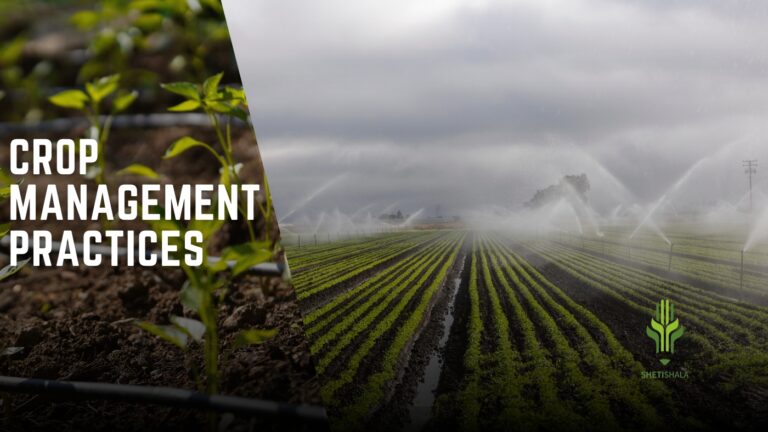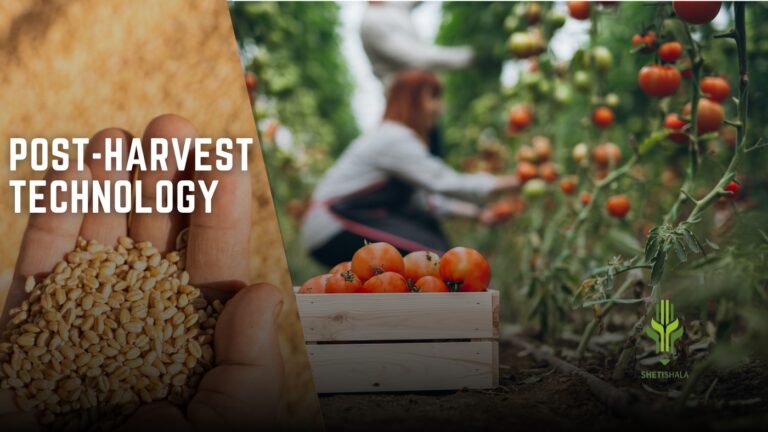Introduction
where agri-entrepreneurship comes into play ? Agriculture has been the backbone of many economies, particularly in countries like India, where a significant portion of the population depends on it for livelihood. However, traditional farming methods often limit growth potential. This is where agri-entrepreneurship comes into play, transforming agriculture from a subsistence activity into a thriving business opportunity. Agri-entrepreneurship involves innovative approaches to agriculture that enhance productivity, efficiency, and profitability. This blog delves into the opportunities, challenges, and practical tips for starting and running successful agricultural businesses.

Opportunities in Agri-Entrepreneurship: Pioneering Sustainable Agricultural Solutions
Agri-entrepreneurship stands at the forefront of innovation in agriculture, combining traditional farming practices with modern entrepreneurial strategies to address global challenges such as food security, environmental sustainability, and economic development. This comprehensive blog explores the expansive landscape of opportunities available in agri-entrepreneurship, highlighting key sectors, technological advancements, market trends, and strategic insights for aspiring agricultural innovators.
Understanding Agri-Entrepreneurship
Agri-entrepreneurship encompasses a diverse array of entrepreneurial ventures within the agricultural sector, ranging from small-scale organic farming operations to high-tech agri-tech startups. These ventures aim to enhance agricultural productivity, improve resource efficiency, and create value-added products while ensuring environmental stewardship and social responsibility.
1. Organic Farming: Embracing Health and Sustainability
Organic farming has emerged as a lucrative opportunity within agri-entrepreneurship, driven by increasing consumer demand for organic, chemical-free produce. This farming practice emphasizes soil health, biodiversity conservation, and natural pest management techniques, aligning with global trends towards sustainable agriculture.

Market Demand and Economic Viability
The organic market offers promising opportunities for agri-entrepreneurs due to premium prices commanded by organic products and growing consumer awareness about health and environmental benefits. Entrepreneurs can cultivate a variety of organic crops, including fruits, vegetables, grains, and herbs, leveraging organic certification to access niche markets and differentiate their products.
Challenges and Strategies
Despite the growth potential, organic farming presents challenges such as higher production costs, certification requirements, and market competition. Agri-entrepreneurs can mitigate these challenges by adopting efficient farming practices, exploring value-added opportunities through organic food processing, and building strong consumer trust through transparent marketing and certification.
2. Precision Agriculture: Revolutionizing Farm Management
Precision agriculture represents a technological revolution in farm management, leveraging advanced tools such as GPS, sensors, drones, and data analytics to optimize crop production and resource utilization.

Technological Innovations and Applications
Entrepreneurs can innovate within precision agriculture by developing and deploying precision farming equipment, automated irrigation systems, AI-driven decision support tools, and remote sensing technologies. These innovations enable real-time monitoring of soil conditions, crop health, and weather patterns, facilitating precise interventions in fertilizer application, pest control, and irrigation management.
Benefits and Market Opportunities
Precision agriculture offers substantial benefits, including enhanced crop yields, reduced input costs, and improved environmental sustainability through precise resource management. Agri-entrepreneurs can capitalize on the growing demand for precision agriculture solutions from commercial farmers, large-scale agribusinesses, and government agricultural agencies seeking to optimize productivity and sustainability.
Challenges and Strategic Approaches
Challenges in adopting precision agriculture include initial investment costs, technological complexity, and data management challenges. Agri-entrepreneurs can address these challenges by offering scalable and cost-effective solutions, providing training and support services, and forging strategic partnerships with technology providers, research institutions, and agricultural stakeholders.
3. Vertical Farming and Hydroponics: Innovating Urban Agriculture
Vertical farming and hydroponics represent innovative approaches to urban agriculture, enabling year-round cultivation in controlled indoor environments without soil.

Sustainable Urban Food Production
Vertical farms use stacked layers to maximize space efficiency, making them ideal for urban areas with limited land availability. Hydroponic systems deliver nutrients directly to plant roots in a nutrient-rich water solution, promoting rapid growth and high yields while conserving water and minimizing environmental impact.
Market Demand and Economic Feasibility
Agri-entrepreneurs can capitalize on vertical farming and hydroponics by producing a variety of high-value crops, including leafy greens, herbs, strawberries, and microgreens, for local markets and urban consumers. These methods offer opportunities for premium pricing, consistent product quality, and supply chain resilience in urban food systems.
Scaling Challenges and Strategic Solutions
Scaling vertical farming and hydroponics operations involves addressing challenges such as initial setup costs, energy efficiency, operational scalability, and market penetration. Agri-entrepreneurs can overcome these challenges by adopting modular farming systems, optimizing resource utilization, integrating renewable energy solutions, and leveraging technological advancements in indoor agriculture.
4. Value-Added Products and Food Processing: Enhancing Market Competitiveness
Value-added products and food processing play a critical role in agri-entrepreneurship by transforming raw agricultural commodities into packaged, branded, and shelf-stable products with higher market value and consumer appeal.

Diversification and Market Differentiation
Entrepreneurs can diversify their agricultural ventures by establishing food processing facilities for canning, freezing, drying, and packaging fruits, vegetables, grains, and dairy products. Value-added products such as jams, sauces, ready-to-eat meals, and health supplements cater to diverse consumer preferences for convenience, nutrition, and culinary innovation.
Market Expansion and Brand Development
Agri-entrepreneurs can expand market reach and enhance brand visibility through strategic partnerships with retailers, e-commerce platforms, and food service providers. By investing in quality assurance, food safety certifications, and sustainable packaging solutions, entrepreneurs can build consumer trust and loyalty in competitive food markets.
Innovation and Adaptation
To stay competitive, agri-entrepreneurs must innovate in product development, packaging design, and marketing strategies to meet evolving consumer trends and regulatory requirements. By incorporating local ingredients, promoting ethical sourcing practices, and emphasizing nutritional benefits, entrepreneurs can differentiate their value-added products and capture market opportunities.
5. Agro-Tourism: Engaging Consumers in Farm Experiences
Agro-tourism combines agricultural activities with tourism experiences, offering visitors opportunities to engage in farm tours, educational workshops, culinary events, and rural hospitality.

Rural Economic Development
Agri-entrepreneurs can diversify income streams and promote rural economic development by hosting agro-tourism activities that showcase local farming practices, cultural heritage, and agrarian landscapes. By offering authentic farm-to-table experiences, agri-tourism businesses attract tourists, school groups, and urban consumers seeking sustainable travel experiences.
Sustainability and Community Engagement
Agro-tourism fosters connections between farmers and consumers, promotes environmental stewardship, and supports local communities through job creation, infrastructure development, and agricultural education programs. Agri-entrepreneurs can collaborate with tourism agencies, hospitality providers, and regional authorities to promote agro-tourism as a sustainable and socially responsible travel option.
6. Agri-Tech Innovations: Driving Agricultural Transformation
Agri-tech innovations encompass a wide range of technological advancements, digital solutions, and smart farming technologies that optimize agricultural production, improve supply chain efficiency, and enhance farm management practices.

Emerging Technologies and Applications
Entrepreneurs in agri-tech can develop innovative solutions such as farm management software, IoT-enabled devices, robotic systems, and AI-driven analytics platforms to address challenges in crop monitoring, yield forecasting, soil health management, and pest control. These technologies enable data-driven decision-making, precision farming practices, and resource-efficient agriculture.
Market Adoption and Investment Opportunities
Agri-entrepreneurs can leverage growing investments in agri-tech startups, venture capital funding, and government initiatives to accelerate technology adoption and market penetration. By collaborating with research institutions, agricultural cooperatives, and industry stakeholders, entrepreneurs can pilot and scale innovative agri-tech solutions that address specific challenges in regional farming communities.
Challenges and Strategic Partnerships
Despite the potential benefits, agri-tech adoption faces challenges such as technological complexity, data privacy concerns, and infrastructure limitations in rural areas. Agri-entrepreneurs can overcome these challenges by offering user-friendly solutions, providing training and technical support, and fostering strategic partnerships with technology providers, agricultural extension services, and financial institutions.
Challenges in Agri-Entrepreneurship: Navigating Complexities for Sustainable Agricultural Innovation
Agri-entrepreneurship, despite offering promising opportunities for innovation and growth, presents a myriad of challenges that entrepreneurs must navigate effectively to achieve success in the dynamic agricultural sector. This comprehensive blog explores the multifaceted challenges faced by agri-entrepreneurs, ranging from financial constraints and market dynamics to regulatory hurdles, environmental risks, and socio-economic factors. Understanding and addressing these challenges is crucial for fostering sustainable agricultural practices, promoting economic resilience, and enhancing food security worldwide.
Introduction to Agri-Entrepreneurship Challenges
Agri-entrepreneurship involves the integration of entrepreneurial skills with agricultural expertise to develop innovative solutions that address global food demand, environmental sustainability, and economic development. However, the journey of agri-entrepreneurs is fraught with complexities that require strategic planning, resilience, and adaptive strategies to overcome.
Access to Capital and Financial Resources
One of the primary challenges facing agri-entrepreneurs is access to adequate capital and financial resources. Agricultural ventures often require significant upfront investments in land, infrastructure, equipment, seeds, and labor. However, obtaining financing can be challenging due to perceived risks associated with agriculture, including weather uncertainties, market fluctuations, and long production cycles. Financial institutions may be hesitant to provide loans to agricultural startups, particularly small-scale enterprises or those lacking collateral.

Strategies to Overcome Financial Constraints
Agri-entrepreneurs can mitigate financial challenges by exploring alternative financing options such as agricultural loans, grants, subsidies, and venture capital funding specifically targeted at agri-tech innovations. Developing a robust business plan, demonstrating profitability potential, and building partnerships with agricultural cooperatives, development agencies, and private investors can enhance access to capital and support sustainable growth.
Market Access and Distribution Challenges
Achieving market access and navigating complex distribution networks pose significant challenges for agri-entrepreneurs. Agricultural products often face logistical challenges, including transportation costs, storage facilities, and perishability concerns. Moreover, entering competitive markets dominated by established players and managing price volatility can impact profitability and market sustainability.
Strategies for Enhancing Market Reach
Agri-entrepreneurs can overcome market access challenges by adopting market-driven strategies such as diversifying product offerings, establishing partnerships with retailers, wholesalers, and e-commerce platforms, and leveraging digital marketing tools to reach broader consumer segments. Developing strong brand identity, adhering to quality standards, and exploring niche markets or direct-to-consumer sales channels can create competitive advantages and enhance market penetration.
Climate Change and Environmental Risks
Climate change poses significant threats to agricultural productivity and sustainability, impacting crop yields, water availability, soil health, and pest management. Extreme weather events, including droughts, floods, heatwaves, and unpredictable rainfall patterns, can disrupt farming operations and increase production costs. Agri-entrepreneurs must adopt resilient agricultural practices and technologies to mitigate climate risks while promoting environmental stewardship.
Adoption of Climate-Smart Agriculture
Embracing climate-smart agriculture practices, such as conservation tillage, crop diversification, water-efficient irrigation systems, and agroforestry, can enhance resilience to climate change impacts and reduce greenhouse gas emissions. Investing in weather-resistant crop varieties, implementing soil conservation measures, and integrating renewable energy solutions can contribute to sustainable agricultural intensification and long-term profitability.
Technological Adoption and Digital Divide
While technological innovations offer opportunities for enhancing agricultural productivity and efficiency, agri-entrepreneurs often face challenges in adopting and integrating advanced technologies due to technical complexity, high upfront costs, and limited digital literacy among farmers. The digital divide, characterized by unequal access to information and communication technologies (ICTs) in rural areas, hinders widespread adoption of agri-tech solutions.

Strategies for Promoting Technological Adoption
Agri-entrepreneurs can promote technological adoption by offering user-friendly and affordable agri-tech solutions tailored to the needs of smallholder farmers. Collaborating with research institutions, agricultural extension services, and ICT providers to offer training programs, technical support, and demonstration projects can build farmers’ capacity and confidence in adopting new technologies. Developing scalable and interoperable ICT platforms, mobile applications, and precision farming tools can empower farmers to make informed decisions and improve agricultural productivity.
Regulatory and Policy Constraints
Navigating regulatory frameworks, agricultural policies, and bureaucratic procedures presents significant challenges for agri-entrepreneurs. Regulatory requirements related to land tenure, water rights, environmental permits, food safety standards, and trade regulations vary across regions and can impact business operations, market access, and profitability.

Agri-entrepreneurs can engage in advocacy efforts to influence policy development and regulatory reforms that support sustainable agriculture, facilitate market access, and promote entrepreneurial innovation. Collaborating with industry associations, participating in policy dialogues, and lobbying for supportive policies, incentives, and infrastructure investments can create an enabling environment for agri-entrepreneurship and foster sectoral growth.
Social and Economic Factors
Social and economic factors, including land tenure systems, labor shortages, rural-urban migration, and cultural attitudes towards entrepreneurship, influence the viability and success of agri-entrepreneurship ventures. Limited access to skilled labor, inadequate infrastructure, and disparities in income levels can hinder agricultural productivity, farm management practices, and rural development.
Community Engagement and Capacity Building
Agri-entrepreneurs can promote community engagement and capacity building by investing in rural education, vocational training programs, and agricultural extension services. Empowering local communities, supporting women and youth entrepreneurship, and fostering inclusive business models can enhance social equity, economic resilience, and agricultural productivity in rural areas.
Conclusion
Agri-entrepreneurship offers immense opportunities for transforming traditional agriculture into a profitable and sustainable business. By leveraging modern technologies, value addition, and innovative practices, agri-entrepreneurs can tap into new markets and enhance productivity. However, it is crucial to navigate the challenges related to capital, market access, climate risks, and regulatory issues. With thorough research, a well-structured business plan, and a focus on sustainable practices, aspiring agri-entrepreneurs can build successful agricultural businesses that contribute to economic growth and food security.
for more in information agriculture career opportunities (click here)




